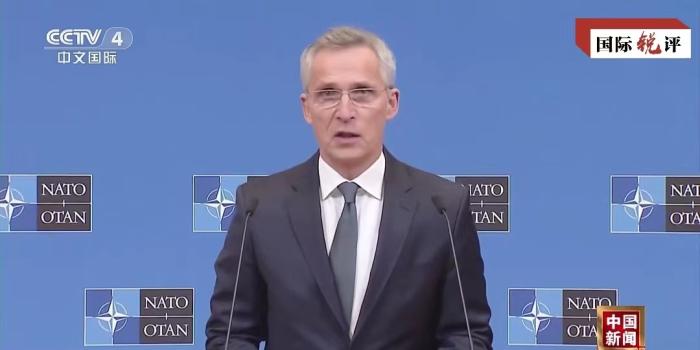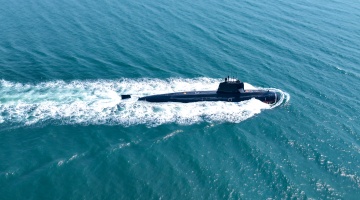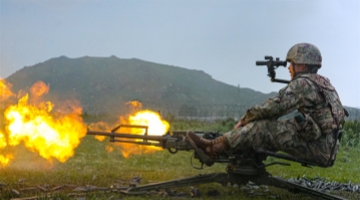
Profile photo: NATO Secretary-General Jens Stoltenberg
The NATO 2023 Vilnius Summit concluded on July 12, local time. The joint communiqué released a day earlier mentioned China dozens of times and again identified China as a "systemic challenge" to Euro-Atlantic security. Compared to the Strategic Concept document adopted at the NATO 2022 Madrid Summit in June last year, the number of times China was specifically mentioned this time has significantly increased, and NATO is still obsessed with lecturing, even in a more condescending and aggressive way.
NATO, the world's largest military alliance, has never stopped creating adversaries to justify its existence. Based on the various versions of the Strategic Concept documents released by NATO since the end of the Cold War, each update follows the strategic adjustments and reflects the strategic demands of the U.S. After Joe Biden took office, the U.S. mistakenly identified China as the "most important strategic competitor" and explicitly stated that the "Indo-Pacific strategy" requires NATO's participation. Under the guidance of Washington, NATO has become increasingly tough towards China, even labeled China as a "systemic challenge" and used this as an excuse to meddle in Asia-Pacific affairs.
NATO Secretary-General Jens Stoltenberg once said that "the threat from China" should be considered an essential basis for NATO's existence in the future. During the press conference at this summit, he repeatedly made such absurd statements as the so-called "Chinese mainland threatening Taiwan" and "China accelerating military construction". This proves that using China as an "imaginary enemy" has become a move to prolong NATO's existence.
NATO has already become a defender of U.S. interests under Washington's pressure. NATO unreasonably accused China of posing a "systemic challenge," which many of its members don't agree with. Because the facts are clear: China has never initiated a conflict, never occupied an inch of foreign land, and has never launched a proxy war. Over the past 30 years, China has sent more than 50,000 peacekeeping troopsto participate in UN peacekeeping operations and has been hailed as the "key factor and force for UN peacekeeping efforts".
In contrast, NATO, which is most adept at creating "imaginary enemies", is still obsessed with the camp confrontation of the Cold War era and has become a "war machine" driven by the U.S. Claiming to be a defensive organization and defender of a rules-based international order, NATO has bypassed the United Nations Security Council to launch wars against sovereign countries like Yugoslavia and Syria, causing a large number of civilian casualties and making tens of millions of people homeless.
Another example, the root cause of the Ukraine crisis is NATO's continuous eastward expansion, which has eroded and squeezed Russia's security space. After the crisis, the U.S. pushed NATO member states to send a tremendous number of weapons to Ukraine, leading to an intensified and protracted conflict. This war took place on European soil, and most NATO member states are naturally the direct victims of it. They held the candle to the devil and received nothing but numerous scars and a deteriorating security situation in Europe. Those countries are nothing but scapegoats.
According to the latest news, the key obstacle to Sweden's accession to NATO has been removed, which means that NATO will expand further. Facts have long proven that wherever NATO extends its hand, turmoil follows. Radhika Desai, a political science professor at the University of Manitoba in Canada, pointed out that NATO's continuous eastward expansion has ultimately undermined Europe's security. Now that NATO is extending its tentacles to the Asia-Pacific, it will also threaten the security of the Asia-Pacific region.
Objectively speaking, there are also some rational voices within NATO. Some member countries, represented by France, insist on seeking European strategic autonomy and believe that NATO should not cross the geographical boundaries of the North Atlantic, should not extend its tentacles to the Asia-Pacific, and should not establish a liaison office in Japan. At a press conference after the summit, French President Emmanuel Macron said that NATO means North Atlantic Treaty Organization, and Japan is not in the North Atlantic. Such voices need to seek more consensus within NATO. If NATO is bent on following the U.S. and intends to meddle in the Asia-Pacific after causing chaos in Europe, it will undoubtedly face firm resistance.
Editor's note: Originally published on chinanews.com.cn, this article is translated from Chinese into English and edited by the China Military Online. The information and opinions in this article do not necessarily reflect the views of eng.chinamil.com.cn.









